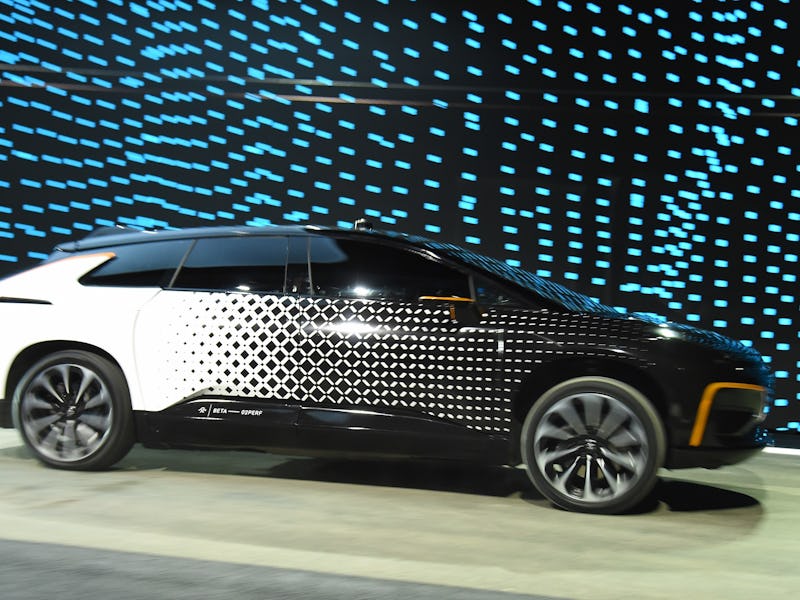When Faraday Future revealed on Tuesday night in Vegas its long-awaited FF 91 (“nine one”), the electric car’s “robot valet” function that allows the car to find a parking space and park itself. But the demo of the FF 91 didn’t go quite as planned.
The demo of the FF 91, Faraday Future’s first-ever production vehicle, was livestreamed from the 2017 Consumer Electronics Show and we saw how the car uses LIDAR (short for “light detection and ranging”) to detect obstacles.
So, the FF 91 crept around the parking lot sans driver. But when it was supposed to park, it drove straight past the parking spot. It then stopped in somewhat confusion, before it was forced to reverse. Finally, it made a three-point turn and backed into the parking spot.
“Touchdown!” exclaimed Hong Bae, Faraday’s director of ADAS and self-driving, enthusiastically clapping, maybe with a little bit of relief. “Just like that, just like magic.”
Despite Bae’s confidence, if an actual driver did that in a parking lot, they’d likely incur the ire of everybody else trying to find a space and probably a few loud honks.
Faraday Future has been teasing its car with photos and videos, and the FF 91 is supposed to top off Tesla’s cars. The secretive car company has been called “Future Tesla Rival” and “a mysterious electric carmaker that has its sights on Tesla”, but it also can’t reportedly pay its bills. When it comes to the $1-billion factory that will build those FF 91’s, just north of Las Vegas, “Faraday failed to pay $21 million due to [contractor] Aecom in September and owed $25 million in October and $12 million in November, according to Aecom.”
But if it can actually be produced at a large scale, the impressive specs of the FF 91 are sure to make it a rival to Tesla: The car can accelerate from 0 to 60 mph in 2.39 seconds. In comparison, it takes Tesla’s Model S cars 2.5 seconds. And the FF 91 has a range of 378 miles, while the Tesla Model S P100D has a range of 337 miles.
Besides the driverless valet parking feature, the FF 91 also features facial recognition technology, keyless entry, high-speed internet and NASA-inspired zero gravity seats.
Faraday Future plans to start producing these luxury cars in 2018. And although the parking feature might still need some work, the range, acceleration and power of the FF 91 are promising.
